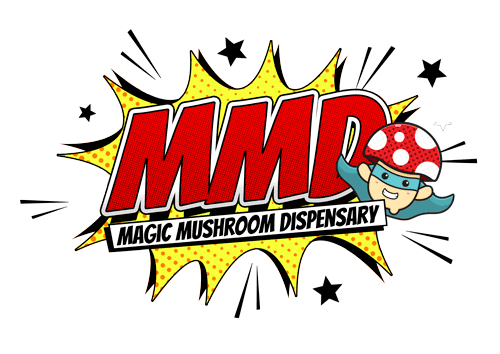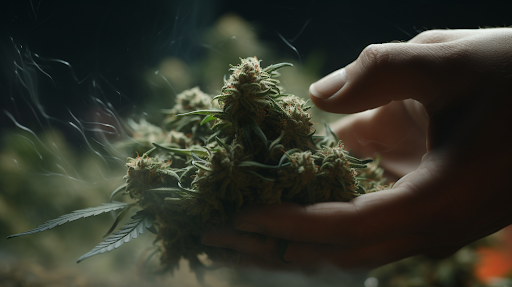Uncategorized
CBD vs. THC: How Do They Differ?
Cannabinoids, the chemical compounds found in cannabis plants, have gained widespread attention for their potential therapeutic benefits. Among these cannabinoids, cannabidiol (CBD) and delta-9-tetrahydrocannabinol (THC) stand out, each offering unique effects and applications. In this comprehensive exploration, we explain what CBD and THC are, how they work, and the key distinctions between them, including their effects on the body.
What is CBD and How Does it Work?
Cannabidiol (CBD) is a non-psychoactive cannabinoid found in both cannabis and hemp plants. Unlike THC, CBD does not induce a “high” feeling commonly associated with marijuana use. Instead, it interacts with the body’s endocannabinoid system, a complex network of receptors and neurotransmitters that play a crucial role in maintaining homeostasis.
CBD Mechanism of Action
CBD interacts with CB1 and CB2 receptors in the endocannabinoid system. Unlike THC, CBD does not bind strongly to CB1 receptors, which are mainly found in the central nervous system. Instead, it influences CB2 receptors, primarily located in the immune system. This interaction results in various therapeutic effects without the psychoactive properties of THC, which is why it is often referred to as medical cannabis.
Effects of CBD
CBD is often used as a type of medicine thanks to its wide range of potential health benefits. Hemp-derived CBD products can be utilized to treat various ailments, from neuropathic pain to panic attacks.
Here are some of the most common potential side effects of CBD that highlight its therapeutic potential benefits:
- Pain Relief: CBD has analgesic properties and may help alleviate both acute and chronic pain.
- Anti-Anxiety: Known for its anxiolytic properties, CBD may reduce symptoms of anxiety disorders.
- Anti-Inflammatory: CBD exhibits anti-inflammatory effects, making it a potential option for inflammatory conditions.
- Neuroprotective: Some studies suggest that CBD has neuroprotective properties, potentially benefiting conditions like epilepsy.
- Antioxidant: CBD’s antioxidant properties may contribute to overall health by combating oxidative stress.
- Anti-Nausea: CBD may help reduce nausea and vomiting, making it beneficial for individuals undergoing chemotherapy.
- Appetite Regulation: While not as pronounced as THC, CBD may influence appetite regulation, helping with conditions like poor appetite.
What is THC and How Does it Work?
Delta-9-tetrahydrocannabinol (THC) is the primary psychoactive cannabinoid in cannabis. It’s responsible for the euphoric “high” that is often associated with marijuana use. THC interacts primarily with CB1 receptors in the brain, leading to its higher levels of psychoactive effects.
THC Mechanism of Action
THC closely resembles the structure of anandamide, a neurotransmitter produced naturally in the body. It binds to CB1 cannabinoid receptors, particularly in the central nervous system, mimicking the effects of anandamide. This interaction results in the psychoactive sensations associated with marijuana use.
Effects of THC
THC cannabis products are known for their intoxicating effects. Whilst there is some overlap between the effects of THC and CBD, such as pain relief and anti-nausea properties, there are also some key differences.
Below is a brief breakdown of the effects of THC:
- Euphoria: THC induces a sense of euphoria, altering mood and perception.
- Pain Relief: THC has analgesic properties and is often used for pain management.
- Increased Appetite: Commonly known as the “munchies,” THC possesses appetite stimulation properties.
- Anti-Nausea: THC’s antiemetic properties make it effective in alleviating nausea and vomiting.
- Altered Perception: THC leads to changes in sensory perception, such as heightened sensitivity to sounds and colors.
- Improved Sleep: THC may contribute to improved sleep quality, especially in conditions like insomnia.
- Creativity: Some individuals report increased creativity and altered thought patterns under the influence of THC.
Differences Between CBD and THC
Although THC and CBD do share some similarities, there is also a vast array of differences between the two types of cannabis. It is essential for people to understand the differences in order to help them make an informed decision on the effects of cannabis and decide which type is best suited to their needs, which is why we have listed some of the important differences below.
Psychoactivity
- CBD: Non-psychoactive, does not induce a “high.”
- THC: Psychoactive, produces euphoria and altered perception.
Receptor Interaction
- CBD: Interacts with CB1 and CB2 receptors, with a weaker affinity for CB1.
- THC: Binds strongly to CB1 receptors in the central nervous system.
Legal Status
- CBD: Legal in many places, especially when derived from hemp with low THC content.
- THC: Subject to varying legal restrictions, often regulated due to its psychoactive ingredients.
Therapeutic Applications
- CBD: Widely used for pain relief, anxiety, inflammation, and various medical conditions.
- THC: Primarily used for pain management, relaxation, and as an appetite stimulant in medical settings.
Side Effects
- CBD: Generally well-tolerated, with minimal side effects reported.
- THC: Can cause negative effects such as dry mouth, red eyes, impaired memory, and increased heart rate.
Combining two powerful cannabis plants: benefits and risks
Do CBD and THC Make You Feel Different Things?
Yes, CBD and THC produce different sensations due to their distinct mechanisms of action. CBD, being non-psychoactive, does not induce a euphoric high. Instead, it offers a sense of calmness, relaxation, and pain relief. THC, on the other hand, produces the characteristic marijuana “high,” leading to altered perception, heightened sensory experiences, and mood changes.
Individual responses to CBD and THC can vary based on factors such as dosage, individual sensitivity, and the presence of other cannabinoids (full-spectrum products). It’s essential for users to be aware of the potential effects and choose products that align with their desired outcomes.
How is CBD Ingested?
CBD can be ingested in various forms, and the choice of consumption method often depends on individual preferences, the desired effects, and the specific health condition being addressed.
Here are some of the most common ways CBD is ingested:
- CBD Oil/Tinctures: Administered sublingually (under the tongue) using a dropper. Its benefits include fast absorption into the bloodstream, allowing for quick onset of effects.
- CBD Capsules or Softgels: Swallowed like traditional pills. Its benefits include precise dosing, tastelessness, and convenience for those who prefer a familiar ingestion method.
- CBD Edibles: Consumed as gummies, chocolates, or other food products. This method is discreet, easy to incorporate into daily routines, and often comes in pre-dosed servings.
How is THC Ingested?
THC, the psychoactive compound found in cannabis, is ingested through various methods, each offering unique advantages and considerations. Here are some of the most common ways THC is ingested:
- Smoking: Inhaling smoke from combusted cannabis flowers using a joint, pipe, or bong. This method creates a rapid onset of effects, easy to control dosage, and is a familiar method for many users.
- Vaping: Inhaling vaporized THC using a vaporizer or vape pen. Similar benefits to smoking but with reduced exposure to harmful combustion by-products; provides quick onset.
- Edibles: Consuming THC-infused food products, such as brownies, gummies, or chocolates. This is a discrete method, with no need for smoking or vaping, and has long-lasting effects, but slower onset compared to inhalation methods.
Buy Cannabis Products Online
Whether you are looking for the intense high of THC products or a relaxing experience from CBD products, Magic Mushroom Dispensary has got you covered. We offer a wide range of high-quality cannabis products available to buy online from anywhere in Canada. With various strains of cannabis flowers and a wide variety of cannabis edibles, our products are ideal for whatever experience you are aiming for. With safe, discreet, and fast packaging, you’ll be enjoying our cannabis in no time.

